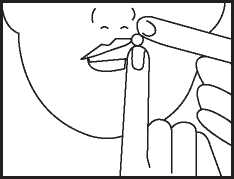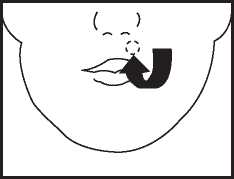Prochlorperazine Maleate 3Mg Buccal Tablets
PC - 2798

PATIENT INFORMATION LEAFLET
Prochlorperazine Maleate 3 mg Buccal Tablets
INFORMATION FOR THE USER
PLEASE READ ALL OF THIS LEAFLET CAREFULLY BEFORE YOU START TO TAKE THIS MEDICINE.
Keep this leaflet. You may need to read it again.
If you have any further questions, ask your doctor or pharmacist.
- This medicine has been prescribed for you. Do not pass it on to others. It may harm them,
even if their symptoms are the same as yours.
- If any of the side effects gets serious, or if you notice any side effects not listed in this leaflet, please tell your doctor or pharmacist.
In this leaflet:
1. What Prochlorperazine Maleate 3 mg Buccal Tablets are and what they are used for
2. Before you take Prochlorperazine Maleate 3 mg Buccal Tablets
3. How to take Prochlorperazine Maleate 3 mg Buccal Tablets
4. Possible side effects
5. How to store Prochlorperazine Maleate 3 mg Buccal Tablets
6. Further information
1. What is this medicine and what is it used for?
Prochlorperazine Maleate 3 mg Buccal Tablets are effective in treating nausea (feeling sick) and vomiting (being sick) from whatever cause. They are also used to treat migraine and dizziness due to ear problems and other causes. Prochlorperazine Maleate 3 mg Buccal Tablets contain prochlorperazine maleate. Prochlorperazine belongs to a large group of drugs known as phenothiazines, which have a variety of effects.
2. Before taking Prochlorperazine Maleate 3 mg Buccal Tablets
You should only take Prochlorperazine Maleate 3 mg Buccal Tablets when your doctor prescribes them for you.
Do not take Prochlorperazine Maleate 3 mg Buccal Tablets if you:
• are allergic (hypersensitive) to Prochlorperazine Maleate or any of the other ingredients
• have problems with your liver
• have blood problems
• suffer from epilepsy, Parkinson’s Disease or glaucoma
• have problems with your prostate gland.
You should ask your doctor before taking Prochlorperazine Maleate 3 mg Buccal Tablets if you:
• are elderly
• are pregnant, thinking of becoming pregnant or breast feeding
• have risk factors for a blood clot such as high blood pressure, high cholesterol levels, diabetes or smoking
• or someone else in your family has a history of blood clots, as medicines like these have been associated with formation of blood clots.
blood pressure (hypertension). Prochlorperazine Maleate 3 mg Buccal Tablets may interact with these types of medicines.
Please tell your doctor or pharmacist if you are taking or have recently taken any other medicines, including those obtained without a prescription.
Taking with food and drink
Prochlorperazine Maleate 3 mg Buccal Tablets are best taken after food.
Do not drink alcohol when taking the tablets as it may interact with medicines like Prochlorperazine Maleate 3 mg Buccal Tablets.
Pregnancy and breast feeding
If you are pregnant or thinking of becoming pregnant, you should only take Prochlorperazine Maleate 3 mg Buccal Tablets on your doctor's instructions.
The following symptoms may occur in newborn babies, of mothers that have used Prochlorperazine Maleate 3 mg Buccal Tablets in the last trimester (last three months of their pregnancy): shaking, muscle stiffness and/or weakness, sleepiness, agitation, breathing problems, and difficulty in feeding. If your baby develops any of these symptoms you may need to contact your doctor.
Experience with Prochlorperazine Maleate 3 mg Buccal Tablets is limited. You should therefore not take the tablets if you are breast-feeding..
Ask your doctor or pharmacist for advice before taking any medicine.
Driving and using machines
Prochlorperazine Maleate 3 mg Buccal Tablets can make you feel drowsy. Therefore you should avoid driving or using dangerous machines until you know how the tablets affect you.
Important information about some of the ingredients of Prochlorperazine Maleate 3 mg Buccal Tablets
This product contains sucrose. If you have been told by your doctor that you have an intolerance to some sugars, contact your doctor before taking this medicinal product.
3. How to use Prochlorperazine Maleate 3 mg Buccal Tablets
You must follow the instructions that your doctor has given you about how much and when to take Prochlorperazine Maleate 3 mg Buccal Tablets.
The usual dosage is one or two tablets twice a day for adults and children over 12 years of age.
Prochlorperazine Maleate 3 mg Buccal Tablets are not recommended for children under 12 years of age.
INSTRUCTIONS FOR USE
Please read carefully before taking the tablet.
Taking with other medicines
You should tell your doctor if you are already taking sedatives or tranquilisers, or you are being treated for high

©


PC - 2798

ilium
• Place the tablet high up along your top gum, under the upper lip either side of your mouth as indicated above. The tablet must not be swallowed whole or chewed.
• The tablet will soften and adhere to the gum. Allow it to dissolve slowly and completely - this may take between 1 and 2 hours. Most people find that after a few minutes they no longer notice the tablet.
• The tablet should not be moved about the mouth with the tongue as this will cause it to dissolve too quickly.
• If you wear dentures, the tablet may be placed in any comfortable position between your lip and gum.
The tablet(s) is best taken after meals.
If you take more Prochlorperazine Maleate 3 mg Buccal Tablets than you should or if you accidentally take too many tablets you must seek medical attention immediately.
If you forget to take Prochlorperazine Maleate 3 mg Buccal Tablets
If you forget to take a dose do not double the dose next time. Just carry on taking the medicine as the doctor has told you.
4. Possible side effects
Like all medicines, Prochlorperazine Maleate 3 mg Buccal Tablets can cause side effects, although not everybody gets them.
If you have a high temperature, pale complexion, muscle stiffness and changes in levels of alertness, you may have developed a serious condition called neuroleptic malignant syndrome. If you have these symptoms while taking the tablets, you should immediately inform your doctor.
Other side effects include:
• drowsiness
• dizziness
• dry mouth
• inability to sleep (insomnia)
• agitation
• mild skin reactions
• low blood pressure (this makes you feel dizzy or faint, particularly when you stand up), particularly in elderly or volume depleted patients (those who have lost both water and salts from the body).
• Blood clots in the veins especially in the legs (symptoms include swelling, pain and redness in the leg), which may travel through blood vessels to the lungs causing chest pain and difficulty in breathing. If you notice any of these symptoms seek medical advice immediately.
• In elderly people with dementia, a small increase in the number of deaths has been reported for patients taking medicines of the same type as Prochlorperazine Maleate 3 mg Buccal Tablets compared with those not taking these medicines.
If any of the side effects gets serious, or if you notice any side effects not listed in this leaflet, please tell your doctor or pharmacist.
Reporting of side effects
If you get any side effects, talk to your doctor, pharmacist or nurse. This includes any possible side effects not listed in this leaflet. You can also report side effects directly via the Yellow Card Scheme at: www.mhra.gov.uk/yellowcard. By reporting side effects you can help provide more information on the safety of this medicine.
5. How to store
Keep all medicines out of reach and sight of children.
Keep the blisters in the outer carton in order to protect from light.
This medicinal product does not require any special temperature storage condition.
Do not use after the expiry date (EXP month/year) shown on the outer carton and blister.
The expiry date refers to the last day of that month.
6. Further information
What Prochlorperazine Maleate 3 mg Buccal Tablets contain
Each tablet contains 3mg of the active ingredient prochlorperazine maleate.
The other ingredients are Sucrose, Povidone (K-30), Riboflavin Sodium Phosphate, Xantham gum (FF), Talc and Magnesium stearate.
What Prochlorperazine Maleate 3 mg Buccal Tablets look like and contents of the pack
Prochlorperazine Maleate 3mg Buccal Tablets are Pale yellow to yellow, circular, biconvex uncoated tablets debossed with “P3” on one side and plain on the other side.
Prochlorperazine Maleate 3mg Buccal Tablets are available in blister packs containing 14, 15, 30, 50 and 60 tablets.
Marketing Authorisation Holder and Manufacturer:
MEDREICH PLC
Warwick House, Plane Tree Crescent,
Feltham TW13 7HF, UK
PL 21880/0122
This leaflet was last revised in 02/2014
POM
Occasional
• local irritation to the gum and mouth may occur.
Rare
• jaundice (yellowing of the skin and/or the whites of the eyes)
• blood problems.
Very rare
• breast swelling (in men as well as in women)
• abnormal movements, tremors and muscle rigidity, and unusual movements of the face and tongue.
These reactions are unlikely to happen with the low dose of prochlorperazine in this medicine.
©
121XXXX
n
r